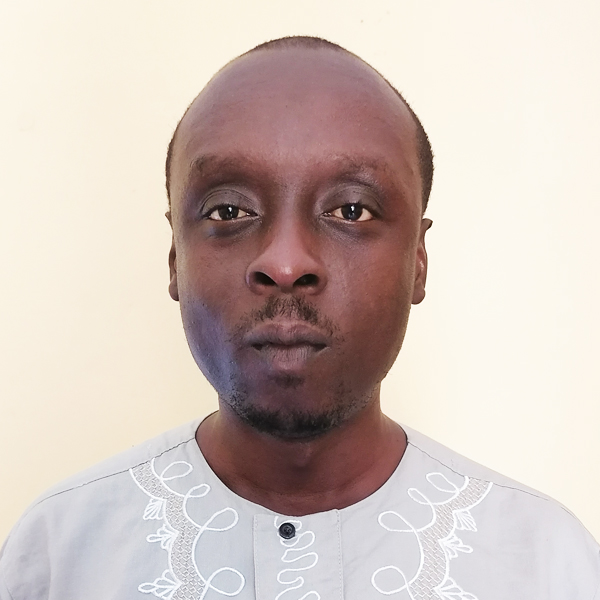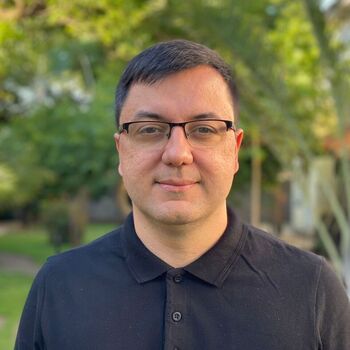Board Elections 2025: Meet the Member Nominees


Potential Member Candidates for the 2025 LPI Board of Directors Election
Certification holders who become formal members of Linux Professional Institute (LPI) help keep the organization accountable, open and transparent to the open source community.
Listed below are the members who are potential nominates to join the member slate at the 2025 LPI board of directors election. In order for the nomination to be confirmed, the potential candidate must have the approval of at least four other members.
To confirm your approval for one or more candidates, please email membership@lpi.org. Please include your LPI ID.
Connect directly with candidates via discuss.lpi.org.
The final day of eligibility to join the member slate at the 2025 election is May 8th. All potential candidates must have the requisite four approvals by May 20, 2025.
The 2025 election candidates will be made public May 21, 2025.
Candidates
NOT CONFIRMED - Potential Member Candidate Emmanuel Nguimbus
Located in: Cameroon

Located in: Cameroon
Emmanuel NGUIMBUS is a computer engineer, an entrepreneur, a lecturer, Mentor, LPI member, LPIC-3 certified and an LPI Approved Trainer.
He is also the co-founder of some projects using only open source: Open Telemedicine System(OpenTMS), a digital health platform, and OpenStudi, a francophone eLearning platform for FOSS. Emmanuel is a co-founder and the Chair of OPENSECURE Foundation, a non-profit organization promoting Open Source and Cybersecurity.
He is a consultant in the framework of several private and governmental projects, which operates 100% open source. He is a member of private and public working groups, project teams, monitoring and steering committees. In these contexts, Emmanuel was able to familiarize himself with issues of training, management, entrepreneurship, strategy and governance.
I want to join the LPI Board in order to bring my strengths as an engineer, trainer, teacher, entrepreneur and open source ambassador to make LPI the leader in the field of Linux certifications through the improvement of marketing, its Francophonization , its extension in places where it is less known like Africa and its positioning in the academic sector.
1. From my point of view, LPI should be the leader in the field of Linux certifications. Many efforts are being made in this direction; but this goal has not yet been achieved. For example, RedHat certifications are perceived to be more valuable than LPI certifications in the job market. My vision is to make LPI the leader in Linux certifications area.
2. Improve LPI’s Marketing and Branding. In my opinion, the designation LPIC-3 Enterprise Professional devalues this certification. For example, LPIC-2 Linux Engineer appears to have the same marketing value as LPIC-3 Enterprise Professional. After all, the Engineer title is more prestigious than Enterprise professional !
3. Improve the French-speaking side with the translation of documents (course materials) and exams into French.
4. As a native of Africa living on this continent, I can say that LPI is not known enough in Africa, especially in French-speaking Africa. Communication efforts should be made for LPI to be better known in Africa.
5. Usually, a professional uses the technology he learned in school. If a maximum of university students receive at least one LPI training course during their training, then they will promote LPI in the companies where they will work. I will do my best to help integrating LPI certifications into universities training courses.
NOT CONFIRMED - Potential Member Candidate Christoforos Pliatsikas
Located in: Patra, Greece

Located in: Patra, Greece
Hello, I’m Christopher—a cybersecurity engineer by profession and a free and open-source advocate by choice.
I started learning Linux as a way to improve my resume, but I quickly fell in love with it. Linux led me to discover homelabbing as a hobby, which in turn sparked my passion for cybersecurity. The rest, as they say, is history.
Currently, I work as an ICS/OT cybersecurity engineer for the multinational company Powerfactors. I am also an LPI-approved trainer for an LPI partner academy in Cyprus and Greece, where I teach Linux Essentials and LPIC-1 to IT professionals and students. Additionally, I am a founding member of the Cyber Security Challenge Greece (CSCGR), an annual CTF-style competition designed to bridge the gap between academia and the cybersecurity industry, helping aspiring students launch their careers in the field.
Looking back, I see all of this as a domino effect that started with my decision to learn Linux. I’m grateful I did—it changed my life. Ever since, I’ve been committed to promoting FOSS through workshops and seminars at local universities and by advocating for open-source solutions in my professional work.
For me, FOSS isn’t just about software; it’s a philosophy of collaboration, transparency, and empowerment. I live by it, and I strive to help it grow, especially in regions like Greece, where its presence outside academia is still evolving.
| I am running for a board seat because I am deeply committed to the values of Free and Open Source Software (FOSS) and its role in shaping a more secure, transparent, and collaborative digital future. My journey into cybersecurity and professional growth can be traced back to my decision to learn Linux, and ever since, I have dedicated myself to giving back to the community that shaped my career.
As a cybersecurity engineer working in ICS/OT security for a multinational company, I have firsthand experience integrating FOSS solutions into large-scale security projects, demonstrating that open-source software is not just a cost-effective alternative but a powerful and reliable choice for enterprises. Additionally, as an LPI-approved trainer, I have educated IT professionals and students in Greece and Cyprus, helping them build strong Linux foundations and fostering the next generation of FOSS advocates. Beyond my professional roles, I have actively worked to expand FOSS adoption in Greece. I played a key role in establishing the first LPI partner in the country and have organized free workshops and seminars at universities to promote open-source technologies. As a founding member of the Cyber Security Challenge Greece (CSCG), I have also worked to bridge the gap between academia and the cybersecurity industry, securing LPI sponsorship to provide opportunities for aspiring professionals. If elected to the board, I will focus on increasing FOSS awareness, supporting educational initiatives, and strengthening industry partnerships to create more opportunities for professionals and students alike. I believe that FOSS is more than just technology—it’s a movement that empowers individuals, organizations, and communities. My goal is to help it grow, particularly in regions where its adoption is still developing. I bring a strong mix of technical expertise, teaching experience, and community-building skills to the table, and I am eager to contribute my knowledge and passion to the board. |
NOT CONFIRMED - Potential Member Candidate Ricardo Prudenciato
Located in: Brazil

Located in: Brazil
I hold a degree in Information Technology and a postgraduate degree in Computer Networks. From the very beginning, my career has been entirely focused on Linux and Open Source, especially in the areas of system administration and support.
Over the past 20 years, I have progressed through many of the professional levels that a Linux specialist typically experiences, from intern to junior, mid-level, senior, and eventually leading and coordinating technical teams. I’ve worked in a variety of environments, ranging from small businesses to large organizations such as IBM, Portugal Telecom, and Vivo (Brazil).
In the last years, my focus has shifted to education and mentorship. I have dedicated myself to helping IT professionals grow in their Linux and Open Source journeys by sharing the knowledge and practical experience I’ve gained throughout my career. I do this mainly through my own online training school, “Linux Sem Fronteiras”, which has become a recognized reference in the field in Brazil.
As an official LPI Training Partner, I have created training programs covering Introduction to GNU/Linux, Shell Scripting, and exam preparation for the LPIC-1 and LPIC-2 certifications. These courses have reached over 40,000 students, primarily across Portuguese-speaking countries.
This experience gives me a deep understanding of the challenges and goals of IT professionals, especially those working in operations and support, as they move through different stages of their careers. Through my training work, I maintain close contact with a diverse community of learners and professionals, which enables me to represent not only my personal perspective but also the broader needs and feedback of the community.
I am passionate about making Linux and Open Source more accessible, and I believe I can contribute meaningfully to LPI’s mission by acting as a bridge between the organization and the professionals who rely on it to validate their skills and build their careers.
I believe I can contribute not only through my professional experience, but especially through the close connection I maintain with the community. Running for the board is a meaningful opportunity to give back to the LPI, an organization that has played an important role in my own career journey.
Through my work in training and mentoring thousands of Linux and Open Source professionals, I’ve gained a deep understanding of their goals, needs, and challenges. I see the board as a space where this insight can help shape initiatives that truly reflect the reality of the professionals we aim to support , especially those working in systems administration, support, and infrastructure.
Beyond contributing, I also see this as a unique opportunity for personal and professional growth. Being part of a diverse and experienced team, exchanging ideas with people from around the world, and actively collaborating within an organization I’ve admired and respected for many years, would be an incredibly enriching experience.
My goal is to serve as a bridge between LPI and the global Linux and Open Source community and help expand the organization’s impact and accessibility, while staying true to its mission of enabling economic and creative opportunities for everyone through open source.